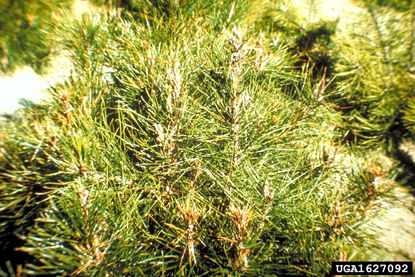Garden Pests
Identifying garden pests is sometimes difficult, as there are many, but important when it comes to pest control in your garden. However, with the right tips and facts about garden pests at your disposal, you can arm yourself with the tools you need for controlling pests before they take control of your plants. Common pests in the garden don’t need to be a cause for alarm. Simply use the following information for identifying garden pests and learn how to employ the best methods for pest control in your garden.
Explore Garden Pests
-

Learn About Leaf Cutter Bees
Do you ever see half moon shaped notches that appear to have been cut out of the leaves on your rosebushes or shrubs? If so, your garden may have been visited by the leaf cutter bee. Learn more here.
By Stan V. Griep
-
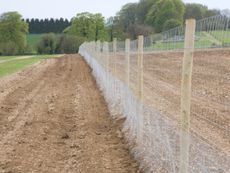
Deer Fencing Designs - How To Build A Deer Proof Fence
Deer are elegant and graceful creatures but these attributes fall short when they have been in the garden eating your prize plants. If repellents aren't working, think about building a deer proof fence. This article will help.
By Bonnie L. Grant
-
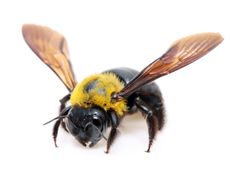
Carpenter Bee Control: How To Prevent Carpenter Bee Damage
Carpenter bees pose little threat to people, but they can cause serious damage to exposed wood. Read this article to find out how to get rid of carpenter bees. Click here for more information.
By Jackie Carroll
-

Uses For Diatomaceous Earth - Diatomaceous Earth For Insect Control
Have you ever heard of diatomaceous earth? If not, this article will provide information and tips on using diatomaceous earth in the garden so you can take advantage of all its benefits.
By Stan V. Griep
-
Pin Nematode Treatment: How To Stop Pin Nematodes
Troublesome pests like pin nematodes may be difficult to detect without prior suspicion of their presence. Awareness of pin nematode symptoms may help in determining whether or not this may be an issue in the home garden. Learn more about the pests in this article.
By Tonya Barnett
-
Pink Rust Mite Damage – Learn How To Kill Pink Citrus Rust Mites
Although pink citrus rust mite pests may be a pretty color, there is nothing cute about these destructive insects. Anyone growing citrus in a home orchard should be able to recognize pink citrus mite damage. If you need more information, this article will help.
By Teo Spengler
-
Stunt Nematode Control: How To Prevent Stunt Nematodes
You may never have heard of stunt nematodes, but that doesn’t mean that these microscopic worms aren’t affecting you. If you’re looking for a description of stunt nematode symptoms, plus a few tips on stunt nematode control, then this article can help.
By Teo Spengler
-

Keeping Bugs Out Of Sandboxes – How To Kill Sandbox Bugs
Among the most common problems found in sandboxes are insects. Keep reading to learn how to keep bugs out of sandboxes.
By Tonya Barnett
-
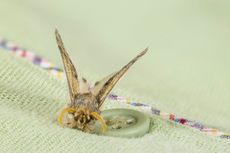
Natural Indoor Moth Repellant: Learn About Herbs That Drive Away Moths
Did you know that you can actually deter moths with herbs indoors? Your very own dried herbs are great alternatives to toxic, stinky mothballs and will help you keep moths out of the house and away from your clothing and linens. Learn more in this article.
By Mary Ellen Ellis
-
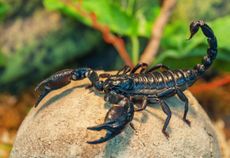
Scorpion Control In Gardens: Learn What To Do About Garden Scorpions
Most scorpion stings to adults are not life-threatening but the pain is enough for you to consider scorpion control to prevent pets and children from getting hurt by these arthropods. Learn ways to rid the garden and other areas of scorpions in this article.
By Bonnie L. Grant
-
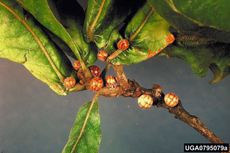
Kermes Scale Lifecycle: Tips On Treating Kermes Scale Insect Pests
What are kermes scale pests? Kermes scale are aggressive, sap-sucking pests that can cause significant damage to oak trees. Treating kermes scale on plants is attained by a variety of methods. Learn about kermes scale control in this article.
By Mary H. Dyer
-
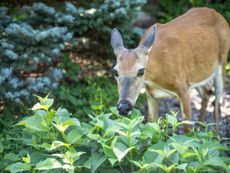
How To Keep Deer From Eating Plants - Garden Deer Protection For Plants
Trying to keep deer out of the garden can be frustrating but with a little know-how and ingenuity, your efforts could be well worth the trouble. Read here to learn how to keep deer out of gardens.
By Nikki Tilley
-
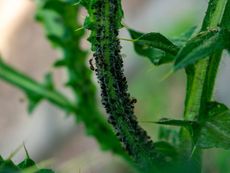
What To Do About Ants – How To Get Rid Of Ants In The Garden
You may be troubled by ants invading your garden beds. If you want to know how to get rid of ants, or need help controlling them, click here.
By Gardening Know How
-
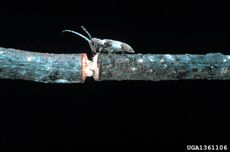
What Are Twig Pruner Beetles: Tips On Twig Pruner Beetle Control
Small branches and cleanly cut twigs on the ground around a tree may indicate a problem with twig pruner beetles. The beetles attack many types of trees. Find out about identifying and controlling twig pruner beetles in this article.
By Jackie Carroll
-
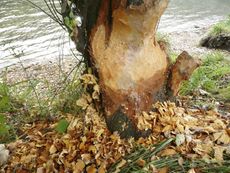
Beaver Damage To Trees: How To Protect Trees From Beaver Damage
While it's frustrating to notice signs of beaver damage to trees, it's important to recognize the importance of these wetland creatures and strike a healthy balance. Click this article for some helpful tips for protecting trees from beaver damage.
By Mary H. Dyer
-
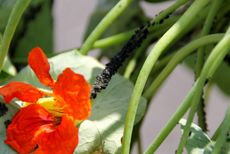
Trap Plants For Aphids: Plants That Repel Aphids In The Garden
Controlling aphids with plants is an easy and effective practice that anyone can do. Use the information found in this article to learn more about plants that naturally repel aphids as well as trap plants for aphid pests.
By Liz Baessler
-
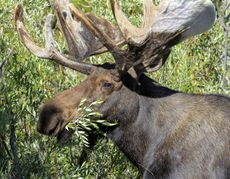
Types Of Moose Deterrents – Tips On Keeping Moose Out Of The Garden
Moose in the garden is a problem that doesn't happen in all parts of North America. That said, for those gardeners with a lifetime of experience of moose in yards, the key to success is mixing it up and confusing these huge grazers. Learn more here.
By Bonnie L. Grant

